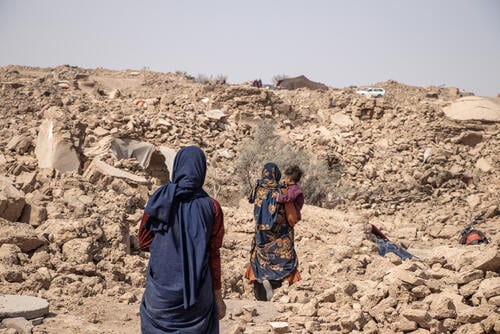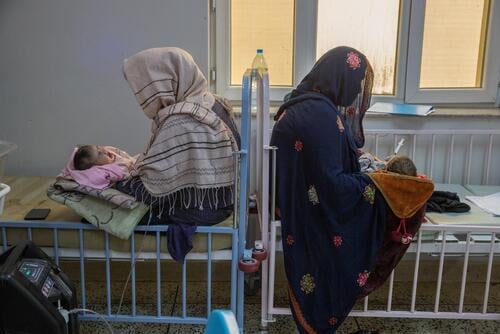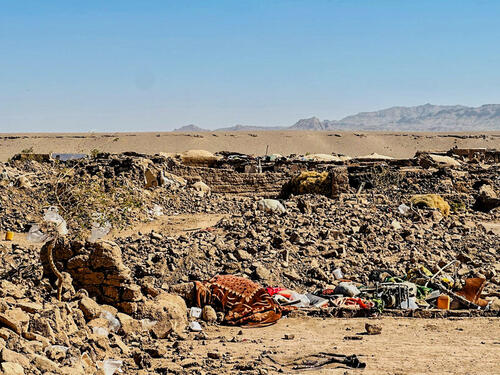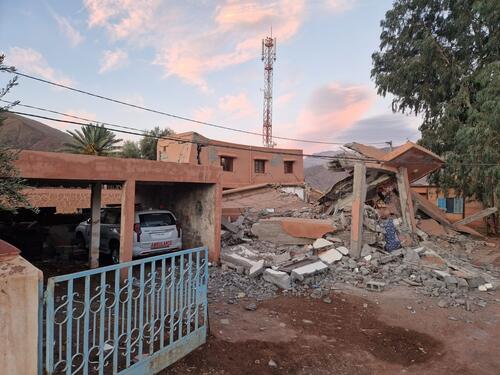Since Saturday 7 October, Herat Province in western Afghanistan has been hit by three powerful earthquakes as well as innumerable aftershocks of varying strengths.
At the Herat Regional Hospital, where Médecins Sans Frontières (MSF) runs regular activities in the paediatric department, we donated mass casualty kits and erected a total of 10 tents in the hospital compound to accommodate the wounded and their caretakers.
Over 800 people received treatment at the hospital. Most patients have mild to moderate injuries, and mental health support remains a primary need. The authorities estimated the number of dead people at around 2,000, but the exact figures remain unclear.
Many people have lost family members, their homes and possessions. Some of them are among the last survivors from their village. Our teams have been visiting some of the worst-affected areas outside the city to assess the medical needs, including the district of Zinda Jan.
Below are some of the stories from the earthquake survivors.
Rabieh Jamali
Rabieh Jamali’s village of Seya Hab, Zinda Jan District, was destroyed in the earthquake. She is staying in the hospital compound with her father, Gul Mohamed, and other members of her family. Rabieh suffered injuries to her leg, head and back.
“When the first earthquake hit, we had just had our lunch and my husband and daughter had stepped outside. That’s when we heard a loud noise, felt some shaking, and everything went black. I woke up to people removing bricks from my body and the rest of my family. There were six people in the room at the time; my three-year-old daughter was killed.
I was taken by helicopter from the village to a military hospital where we spent one night before being brought here to the Herat Regional Hospital. My seven-year-old son, Amaleh is not in good condition, and I am worried about him. He has been admitted to one of the wards. Amaleh lost most of his teeth, his nose was broken, and his head was severely injured.
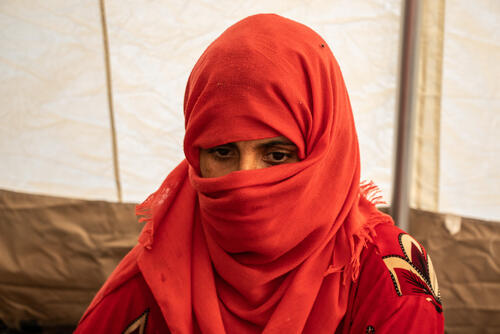
Hassan and Shamaeil Mirzai
Hassan Mirzai and his wife, Shamaeil, come from Naieb Rafi village in Zinda Jan district. They are in the hospital tent with their two-year-old daughter and Hassan’s mother. Hassan was at work when the earthquake struck on 7 October, destroying their house. Shamaeil was injured when the wall of the house collapsed on her, breaking her leg and hurting her back. She was pregnant and was due to deliver soon, but she has since lost the baby.
“My daughter was covered in rubble but thankfully she wasn’t hurt. We were both trapped. When we were pulled from under the debris, I was bleeding and lost consciousness. I was told we were brought here by helicopter,” says Shamaeil.
“When I regained consciousness, I found myself in the maternity ward. I tried to remember what had happened. I initially thought only my house had been damaged, but then my mother and some relatives told me that the whole village had been levelled. I also learned that I had lost my baby. Many people died in the earthquake. We also lost our livestock,” she says.
“When the helicopter came, it took my wife and my little girl, and I came later by ambulance. I found out that they had been brought to this tent. We haven’t been told when she can leave the hospital, but we don’t have a home to go back to anyway,” says Hassan.
“At the moment, my wife sleeps in the tent with a family member and my little girl, while I sleep outside.
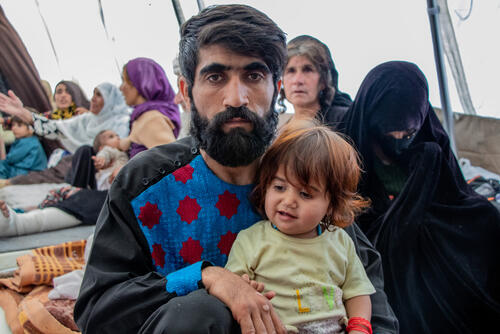
Sangin
Sangin is from also from Naieb Rafi village. He has a broken arm and sprained shoulder. He lost his four sisters in the earthquake.
“It was around 11.30am when something like a strong wind came and the ground shook, collapsing the whole village. Only a few people survived, and I am still thinking whether I am lucky to have been among them.
I was working outside that morning and had gone home to have lunch with my mother and four sisters. Just as I was about to leave, the earthquake struck. I wanted to run outside but was trapped when the wall fell on me. My sisters heard my voice and as they were also trying to run the roof fell on them.
I shouted and people came and pulled me out. My sisters were all dead by the time they were pulled from under the debris. I lost consciousness and when I woke up, I was at the hospital with a bandage on my hand and an IV line running into my hand. That’s when I realised what had really happened. I still hear the tremors in my head.
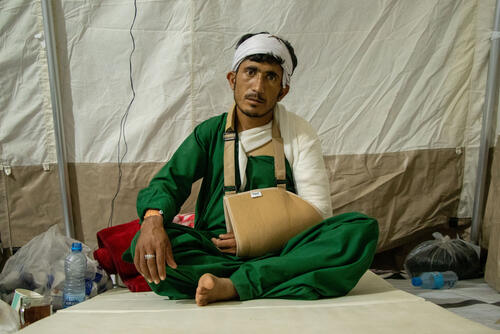
I feel alone. I have lost almost all my closest family. I don’t know what to do. I need money to survive, to get married and build a home. I feel depressed. The devastation that the earthquake caused is all I see. I can’t get it off my mind no matter how hard I try.
I haven’t been told when I will be discharged from the hospital, but even if I am discharged, I don’t have a home to go to. A friend told me that they were given tents. But as you can see, I can’t work, and I need so much support. I need a home and food.”




